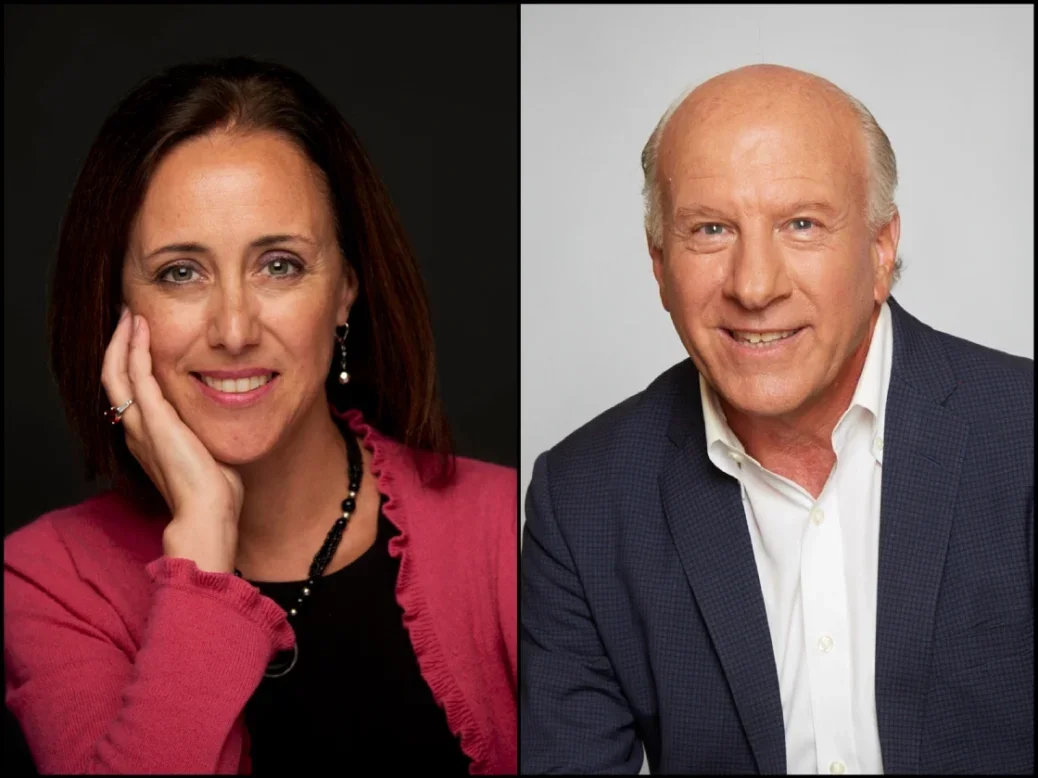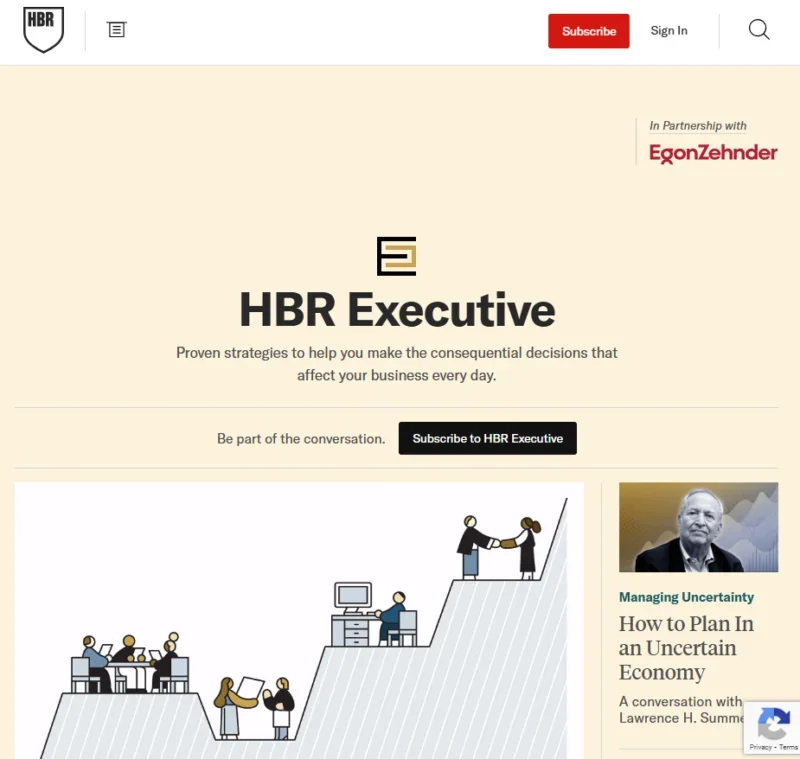
Management magazine brand Harvard Business Review is hoping top executives will pay a high premium for news they can use.
Premium subscription tier HBR Executive launched at the start of June, costing $700 (£510) per year with an introductory price until 1 September of $450 (£328). It includes a weekly newsletter, skills masterclasses, a playbook series with advice and guidance on facing common leadership challenges, live and virtual events.
The previously top-priced premium HBR subscription costs $180 (£131) per year and includes unlimited access to the website, app and magazine archives, a weekly newsletter, the print edition which has six issues per year, discounts on events and gift subscriptions, case studies, and four e-books per year. Executive subscriptions also get all of these perks.
Overall HBR had around 320,000 paid subscribers at the end of last year, according to the Alliance of Audited Media.
Erika Heilman, vice president and deputy publisher at HBR, told Press Gazette this week that the new subscription has “surpassed our projections” so far with a “steady build day by day”.
“This is our growth plan, so it is a big bet for us. And we can just say early days are pointing to that this is really a space where we have a right to win.”
Heilman said HBR itself was using the “playing to win” strategic model with five critical questions at its heart: “What is our winning aspiration? Where will we play? How will we win? What capabilities must we have? What management systems are required?”
Heilman said at least 40% of existing HBR customers were C-level or adjacent before the new offering, representing a “clear signal” that it was something they should be doing. “Really rigorous” articles about strategy, leadership and innovation were also already the key topics converting the most people into paying subscribers, she said.
Since the launch, Heilman said HBR has seen “pent-up demand from our audience to migrate into this new tier”.
Although many existing HBR subscribers see themselves in that executive space, Heilman noted “that’s not going to be everybody. HBR will still serve people who are starting early in their careers, or might be mid-level managers, or might be aspiring to the C-suite. We see the ability to speak to leaders at all levels. But we really felt like… there was more that we could do to super-serve the C-suite.”
Consumer marketing and outreach on group subscriptions – for example for the executive team at a small business – are aiming to reach new subscribers as well.
Although the price is almost 300% higher than the previous highest tier, Heilman said: “We obviously looked at the competition very closely. We surveyed prospective customers, and we got a strong vote for the pricing that we put out in the market, and giving us room to even increase that pricing as we add to the content offering.
“We really wanted to signal quality, and we wanted to signal premium. We know this is a customer base where there is a willingness to pay as long as the content is delivering the insights that we intend to deliver.”
HBR Executive is also bringing in new revenue through sponsorship, with launch partner Egon Zehnder, a leadership advisory and executive search firm, on board and other sponsors said to be interested. That deal will also provide partner content drawing on Egon Zehnder’s work with top executives.

Heilman said the launch was done “very fast for us”: research including a survey of prospective customers took place last summer, a recommendation on the product was made in January and it launched at the start of June.
Editorially the project is being led by editor at large Adi Ignatius, who was editor in chief for 16 years until February, and is writing the weekly newsletter.
Ignatius cited the playbooks in particular as a key attraction: “People just like to kind of watch the game tape and see how others have handled things.”
Ignatius has also put together an advisory board of around a dozen well-known current and former CEOs, through which they will share feedback on the product, help to anticipate the needs of the audience, and create an “organic pipeline” of content such as Q&As or “how I did it” style articles.
The advisory board members include Reid Hoffman formerly of Linkedin, Indra Nooyi formerly of Pepsico, Ginni Rometty formerly of IBM, Timothy Young of Jasper.ai and Henry Timms of Brunswick Group.
Asked why the time was right for a new product now, Ignatius said: “I think this moment has made it really clear to us how hard it is to lead at that highest level,” citing the challenges of AI and geopolitical uncertainty.
He noted “how the media business has changed” with HBR not immune to widespread declines in referrals from search and social and large language models like ChatGPT “satisfying people’s search requests with a decent single answer. So none of us are getting traffic from search the way we used to. And traffic itself has been harder to monetise for those and other reasons. So I think that has pushed a lot of us to think about, you know, there’s some traffic that’s kind of empty calories, right?
“You’re not going to convert people, you’re not going to be able to monetise in any way. It may fulfil your mission, but we have to run a business as well.”
HBR has also optimised its subscriptions strategy to have a dynamic paywall.
HBR is published by the non-profit Harvard Business Publishing, which makes up 29% ($310m in 2023) of revenue at Harvard Business School, part of the famous university in Cambridge, Massachusetts.
Ignatius added that the work carried out last year had pointed to the fact that HBR should “super-serve this relatively high level that we know is hungry for the content and that our research shows probably has a willingness to pay and to convert as well”.
By the end of HBR’s current fiscal year, which runs to the end of June 2026, Ignatius said his key measure of success will be how many people stick around.
“I think our brand and our brand promise has helped us get people to sign up. This is a higher-priced subscription tier than we’ve ever had. It strikes a lot of people as a bargain compared to what some other people charge. So we are getting people to sign up.
“To me, it’s in a year, will they renew?… Have we created value, differentiated value, where, when we ask people to pay again, they say, yeah, that was absolutely worth it?”
Email pged@pressgazette.co.uk to point out mistakes, provide story tips or send in a letter for publication on our "Letters Page" blog
